2021 reflections: shifting power for remote entrepreneurs.
I started in the co-CEO role back in July, after nine months as a board director, amidst a period of transition for ELP. In the past decade, the general Indigenous business landscape and the role of eco-system partners, like ELP, has dramatically shifted.
Over the past few months, I’ve been on the road meeting our first cohort of incubation and mentorship program partners. I have also spoken and met with many potential future participants.
There are so many people with great business ideas – in tourism, consulting, arts and crafts, trades and services and more – which is so exciting.
Historically, employment in remote communities has been incredibly limited – they’re behind urban environments by decades in terms of the breadth of opportunities. Jobs are often limited to those like doctor, nurse, teacher, police officer, retail worker, rubbish collector, ranger.
Today, we see entrepreneurs actively embracing the boundless opportunities to create new pathways for themselves as individuals, as well as for their communities and future generations.
In some places, there are established business leaders who have been charting their own course for many years. In others, people are just starting to discover what is possible. For example, remote communities are able to tap into 21st Century technology to connect directly with their markets and take control of business areas like booking systems or selling products online, something that wasn’t really an option 30 years ago.
In the past, a lack of services and meaningful business education programs have meant that organisations like ELP can take on a middle-man or even a business partner role – inadvertently or otherwise – for remote enterprises. A remote artist or maker might have had someone in Sydney selling their products for them, for example. Essentially, someone other than the remote entrepreneur would be managing key business tasks like business administration, marketing, sales, accounting and governance.
We no longer live in that world.
Now, in many cases, there is no need for the middle man to be there, which actively breeds a new wave of opportunity. Instead, there needs to be a focus on remote entrepreneurs being empowered to learn (and to create their own learning programs) and to make their own decisions about their own business.
We have spent the past few months finalising our programs and one of the key elements embedded in our design is a shift of power. We strongly focus on how ELP and the entrepreneur can work together to create two-way learning opportunities that are balanced and focused on the key areas of need. We acknowledge that there are multiple cultures and perspectives at play at any given time and that they have equal importance.
We want to support and invest in community leaders – the people who are in community doing the work that is often outsourced. Hopefully, ten years from now, we will have evolved into something completely different because the need for our unique type of support will have changed. That’s what we’re aiming for – ELP will keep evolving with the times, and the needs and wants of remote entrepreneurs and enterprises.
2021 was full of highs and lows for us, as I know it was for so many of you. Change is always challenging, but the growth is worth it. We’re coming out the other side with a new vision for our next decade.
Next year, we’re looking forward to sharing more of our future plans with you. We’re keen to further unpack what social enterprise looks like in the remote Indigenous business sector. We want to talk more about the value of networks. And, most importantly, we can’t wait to share more stories from the incredible remote entrepreneurs that we’re privileged to support.
Above: ELP co-CEOs Alexie Seller and Liandra Gaykamaŋu at the Impact North 2021 Christmas party. (photo credit: Thomas Kallonas)
You can learn more about Impact North’s new co-working space here.
Top: Liandra Gaykamangu on the road, visiting entrepreneurs in the remote NT.


